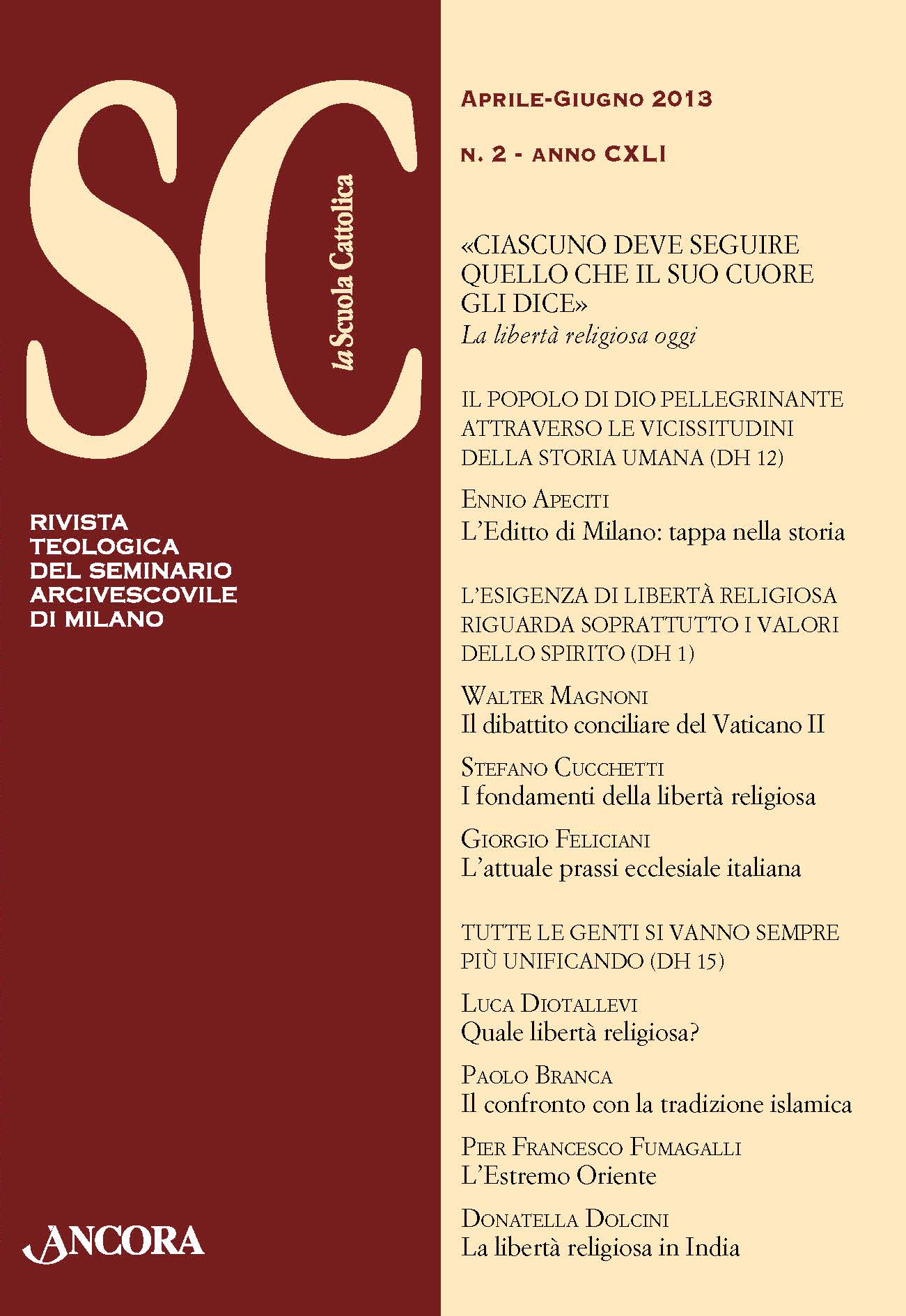La libertà religiosa in India
DOI:
https://doi.org/10.82477/sc.v141i2.4108Abstract
Religion in India has always been rich of different ways, open to personal choices, and all sharing the final belief in one single Supreme Being, which is destined to descend to Earth in different salvific forms. Religious conflicts are recorded only by the arrival in the subcontinent of Islamic armies and European settlers, who entered religion in a political context. Born in this situation and become a sort of faith of the modern age, nationalism accentuated the contrast between different religious communities, causing the birth of “ fundamentalist” groups and the birth of two different nations – India and Pakistan – when British India dissolved (1947). The Indian Union has adopted a secular constitution, weak, however, in checking the degenerated nationalism that shows itself in various areas of northern India by Maoist groups, convinced that Islam and Christianity are not disabled instruments of Western colonialism. Common people, however, keeps alive the spirit of acceptance and respect for someone else’s beliefs, heritage of the ancient tradition of dharma.


